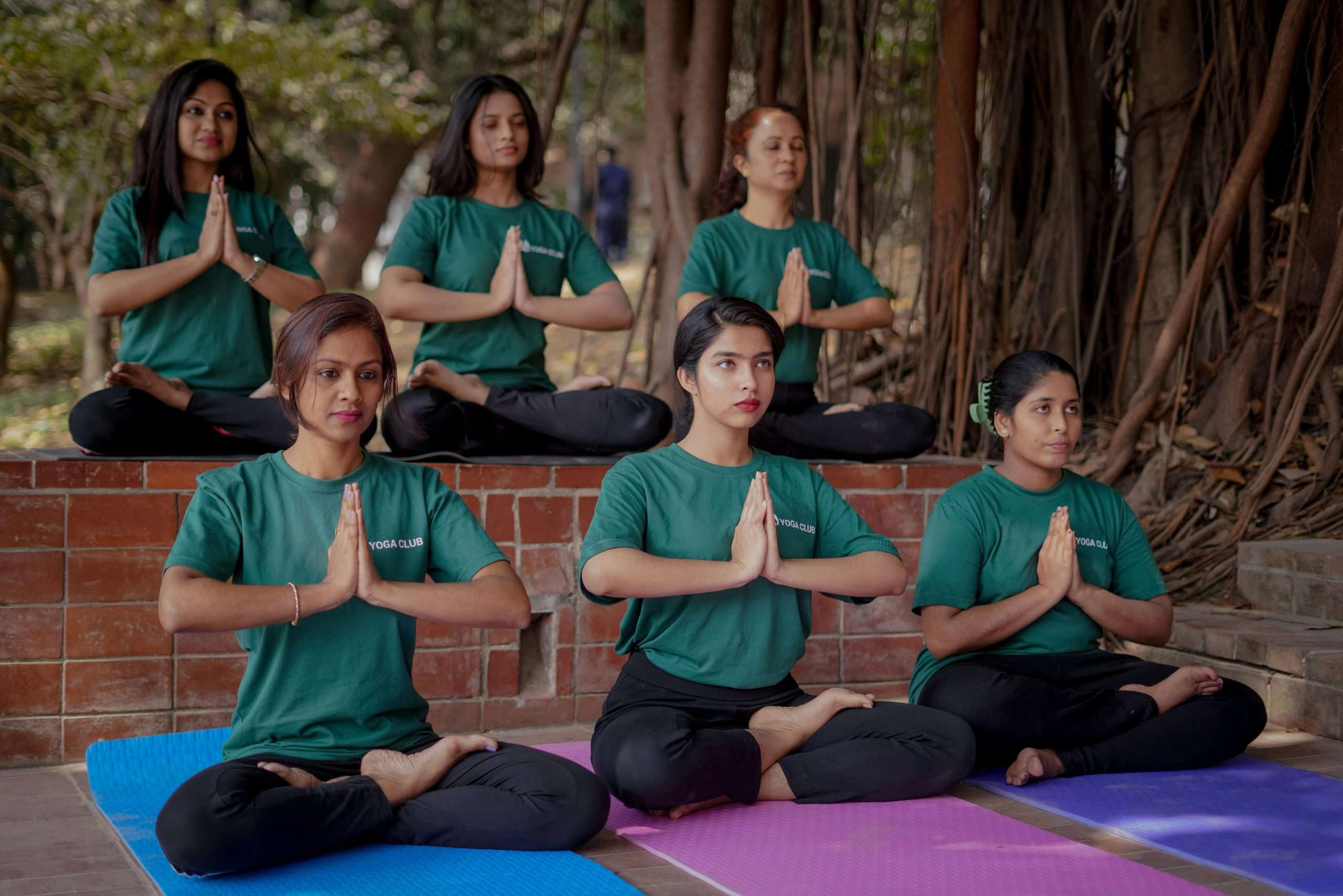How to Tell If You’re Really Good at Social Interaction
(Hint: It’s Not Just About Small Talk)

Social interaction is an art, a skill that goes far beyond the surface level of making small talk at parties or networking events. It’s about connection, empathy, understanding, and the ability to navigate the complexities of human relationships. If you’ve ever wondered whether you’re truly good at social interaction, this guide is for you. Spoiler alert: It’s not just about being the life of the party or having a gift for gab. Let’s dive into the deeper aspects of social interaction and uncover the signs that you’ve mastered this essential life skill.
The Myth of Small Talk: Why It’s Not the Ultimate Social Skill
Small talk often gets a bad rap, but it’s actually a valuable tool in social interaction. It’s the gateway to deeper conversations, a way to establish rapport, and a means to make others feel comfortable. However, being good at small talk doesn’t necessarily mean you’re good at social interaction. In fact, relying solely on small talk can sometimes hinder genuine connection.
Think about it: Have you ever walked away from a conversation feeling like you didn’t really connect with the other person, even though you chatted for a while? That’s the limitation of small talk—it scratches the surface but doesn’t delve into the more meaningful aspects of interaction.
Research Insight: According to a study published in the journal Psychological Science, people who engage in more substantive conversations tend to report higher levels of happiness. This suggests that while small talk has its place, true social interaction goes deeper.
Sign 1: You Listen More Than You Speak
One of the hallmarks of someone who is truly good at social interaction is their ability to listen—really listen. This means not just waiting for your turn to speak, but actively engaging with what the other person is saying. Good listeners make others feel heard and understood, which is a crucial component of effective communication.
Listening also involves picking up on nonverbal cues, such as body language, tone of voice, and facial expressions. These cues can provide valuable insights into what the other person is feeling, even if their words don’t fully convey it.
Research Insight: The importance of listening in social interaction is supported by research. A study published in the International Journal of Listening found that effective listening is associated with higher levels of empathy, trust, and relationship satisfaction.
Tip: Practice active listening by paraphrasing what the other person has said or asking follow-up questions. This shows that you’re engaged in the conversation and interested in understanding their perspective.
Sign 2: You’re Emotionally Intelligent
Emotional intelligence (EQ) is another key indicator of social interaction skills. It involves being aware of your own emotions, understanding the emotions of others, and managing both in a way that fosters positive relationships. People with high EQ are often able to navigate social situations with ease because they can read the room, respond appropriately to others’ emotions, and handle conflicts with grace.
Research Insight: Dr. Daniel Goleman, a leading expert on emotional intelligence, has written extensively about the importance of EQ in both personal and professional relationships. In his book Emotional Intelligence: Why It Can Matter More Than IQ, Goleman explains that emotional intelligence is a better predictor of success in social interactions than cognitive intelligence (IQ).
Tip: To boost your emotional intelligence, practice mindfulness and self-reflection. Being in tune with your own emotions will help you better understand and relate to others.
Sign 3: You’re Comfortable with Silence
Awkward silences are often seen as the enemy of social interaction, but in reality, being comfortable with silence is a sign of social confidence. Silence can provide a necessary pause in the conversation, allowing both parties to reflect on what has been said and consider their responses. People who are good at social interaction know how to use silence to their advantage, rather than rushing to fill it with idle chatter.
Research Insight: A study published in the journal Human Communication Research found that conversational pauses, or silences, can actually enhance communication by giving people time to think and respond more thoughtfully. This is particularly true in high-stakes or emotionally charged conversations.
Tip: The next time you find yourself in a moment of silence during a conversation, resist the urge to fill it immediately. Instead, take a breath, gather your thoughts, and allow the other person to do the same.
Sign 4: You Adapt to Different Social Contexts
Social interaction isn’t a one-size-fits-all skill. Being good at it means being able to adapt your communication style to suit different situations and people. Whether you’re talking to a colleague, a friend, or a stranger, your ability to read the room and adjust your approach accordingly is a sign of social savvy.
For example, the way you interact in a professional setting might be more formal and reserved compared to how you engage with close friends. Similarly, some people might appreciate humor in conversation, while others might prefer a more serious tone. Being attuned to these nuances is a key part of successful social interaction.
Research Insight: The concept of code-switching—adjusting one’s language, tone, or behavior depending on the social context—is well-documented in sociolinguistics. A study published in the Journal of Communication found that people who are skilled at code-switching tend to be more successful in navigating diverse social environments.
Tip: Pay attention to the social cues around you, such as the mood of the group or the cultural context, and adjust your communication style accordingly.
Sign 5: You Build and Maintain Relationships
Social interaction isn’t just about having one-off conversations; it’s also about building and maintaining relationships over time. People who are good at social interaction are often skilled at nurturing connections, whether they’re professional relationships, friendships, or romantic partnerships.
This involves staying in touch, showing genuine interest in others’ lives, and being there for people in both good times and bad. It also means being reliable, trustworthy, and consistent in your interactions.
Research Insight: The importance of relationships in social interaction is highlighted in the book The Social Animal by David Brooks. Brooks argues that the quality of our relationships is a major determinant of our overall happiness and success in life.
Tip: Make an effort to reach out to people in your network regularly, even if it’s just to check in and say hello. Small gestures like this can go a long way in maintaining strong relationships.
Sign 6: You Handle Conflict with Grace
Conflict is an inevitable part of any relationship, but how you handle it can make all the difference. People who are good at social interaction are often able to navigate conflicts with grace, finding ways to resolve disagreements without damaging the relationship. This involves being open to feedback, willing to compromise, and able to communicate your own needs effectively without being confrontational.
Research Insight: According to Dr. John Gottman, a leading researcher on relationships, the key to successful conflict resolution is what he calls “gentle start-up.” In his book The Seven Principles for Making Marriage Work, Gottman explains that approaching conflicts calmly and respectfully can prevent them from escalating and help preserve the relationship.
Tip: When dealing with conflict, try to stay calm and focused on the issue at hand, rather than letting emotions take over. Use “I” statements to express your feelings and needs without blaming the other person.
Sign 7: You’re Genuine and Authentic
Authenticity is a crucial element of effective social interaction. People who are good at socializing don’t put on a façade or try to be someone they’re not. Instead, they show up as their true selves, which makes others feel more comfortable and encourages genuine connection.
Being authentic also means being honest and transparent in your interactions. It’s about speaking your truth, even when it’s difficult, and being willing to be vulnerable when the situation calls for it.
Research Insight: The importance of authenticity in social interaction is supported by research published in the Journal of Personality and Social Psychology. The study found that people who are perceived as authentic are more likely to be trusted and respected by others.
Tip: Practice being true to yourself in social situations, even if it means being a little vulnerable. People are more likely to connect with you on a deeper level when they sense that you’re being genuine.
Sign 8: You Ask Thoughtful Questions
Asking questions is a fundamental part of social interaction, but the quality of your questions can make a big difference in the depth of your conversations. People who are good at socializing tend to ask thoughtful, open-ended questions that encourage the other person to share more about themselves. This not only shows that you’re interested in what they have to say but also helps to build a stronger connection.
Research Insight: The power of asking questions in social interaction is highlighted in the book Never Split the Difference by Chris Voss, a former FBI negotiator. Voss explains that asking calibrated questions—those that are open-ended and encourage dialogue—can be a powerful tool for building rapport and understanding in any conversation.
Tip: Instead of asking yes-or-no questions, try asking questions that invite the other person to share their thoughts, feelings, or experiences. For example, instead of asking “Did you have a good day?” you might ask, “What was the highlight of your day?”
Sign 9: You Make Others Feel Comfortable
One of the most telling signs of someone who is good at social interaction is their ability to make others feel comfortable. This involves creating a welcoming atmosphere, being approachable, and showing empathy for others’ feelings. When people feel comfortable around you, they’re more likely to open up, share their thoughts, and engage in meaningful conversations.
Research Insight: The concept of psychological safety, which refers to the belief that one can speak up without fear of negative consequences, is closely related to making others feel comfortable. A study published in the Harvard Business Review found that teams with high levels of psychological safety are more effective because members feel safe to express their ideas and concerns.
Tip: To create a comfortable environment, be mindful of your body language, tone of voice, and the words you use. Show empathy by acknowledging others’ feelings and being supportive.
Sign 10: You’re a Social Chameleon (But Still True to Yourself)
While authenticity is important, being a “social chameleon”—someone who can adapt to different social situations and personalities—is also a valuable skill. This doesn’t mean being fake or pretending to be someone you’re not. Rather, it’s about being flexible and adjusting your approach to fit the context and the people you’re interacting with.
For example, you might be more energetic and outgoing at a party, but more reserved and thoughtful in a one-on-one conversation. Being able to shift gears in this way shows that you’re socially attuned and capable of navigating a variety of social scenarios.
Research Insight: The ability to adapt in social situations is supported by research on social adaptability. A study published in the Journal of Applied Social Psychology found that people who are more adaptable in social situations tend to have stronger relationships and are more successful in their interactions.
Tip: Practice being adaptable in your social interactions by paying attention to the dynamics of the situation and adjusting your behavior accordingly. Just remember to stay true to yourself and your values, even as you adapt.
Conclusion: Social Interaction Is More Than Just Small Talk
Being good at social interaction is about much more than just making small talk. It’s about connecting with others on a deeper level, being emotionally intelligent, and adapting to different social contexts. Whether you’re a natural social butterfly or someone who struggles with social anxiety, these signs can help you gauge your social skills and identify areas for improvement.
So, the next time you’re in a social situation, remember: It’s not just about what you say—it’s about how you listen, how you make others feel, and how you connect on a deeper level. And that’s the real secret to being good at social interaction.












